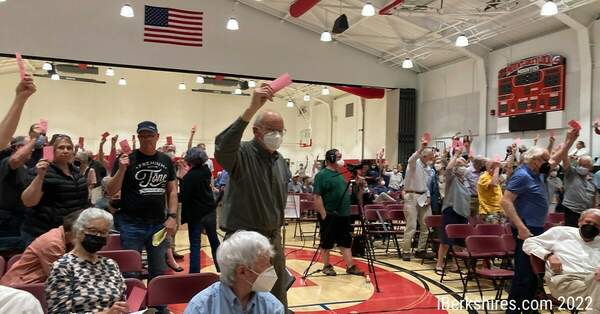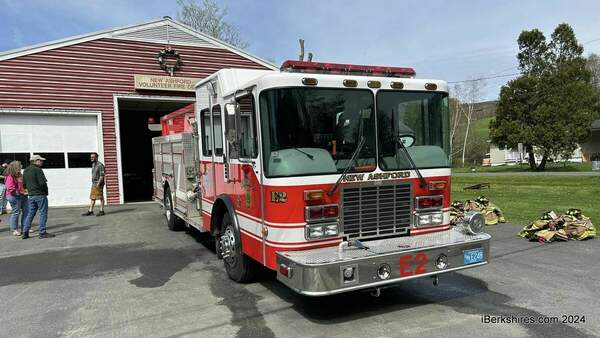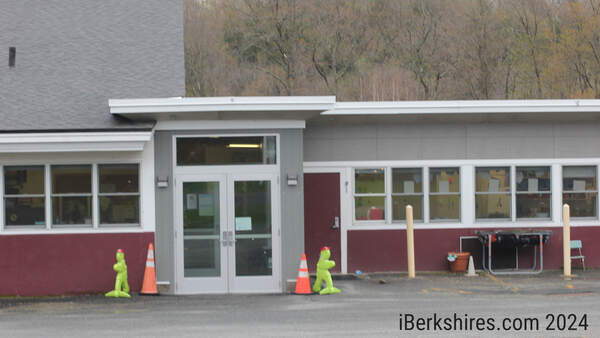Letter: Zoning Changes in Williamstown Not Minor
 |
To the Editor:
I write in regard to the zoning changes being voted on by the Planning Board, being referenced as changes to promote affordable housing. I, for one, really want to see more affordable housing in Williamstown and welcome the zoning review; however, the present proposals, as submitted, do not advance affordable housing in our town. In fact, they create real losses/costs especially for our rural RR2 zone. I submit that your proposals are a very big deal and need some big-deal time for thorough review and analysis before they are ready for "prime time."
1. Major changes, NOT just "at the margins."
The chairman at the most recent Planning Board meeting frequently referred to the changes as just "at the margins." The schedule changes alone (frontage reductions, lot size reduction, set back requirements), and all the other changes when taken as a whole, are anything but "at the margins." They will have a dramatic impact on density, what Williamstown looks like and feels like, and on who and what benefits or loses. Quality of life will be affected.
Just one example: Minor lane changes. The "slight" change you make to allow a minor lane to connect with thru streets can allow a subdivision to be built. Whether nor not the provision has been used in the past (an argument supporting the change was that the provision had not been used much or at all), the issue is what are the effects in the future with the change, not its past use.
2. Where are the planning studies?
When such a major set of changes is proposed, where are the planning studies to show what the effects will be? Would any of you make a major proposal to your employer/company/organization without the data to support it?
Where is the data to show that the zoning changes you are making will have any significant effect on your stated goal: creating affordable housing?
Where is the data to show what the increased density will do to housing valuations in the short and long run?
What are the effects of added density other than additional market-rate housing?
What surveys have been done?
What research has been done in other communities or at the state level regarding zoning changes to support affordable housing?
By the way, another comment at the most recent board meeting concluded that it would be great to return the frontage to 66 feet in GR [?] because that is what it originally was in the 1800s.
Although I understand we already have some housing with such frontage, later town planners voted to change that due to changing conditions such as the need for space for cars and more space for homes and yards etc. Those conditions that were valid then have only increased since then. Data driven studies would analyze this for all of us.
Informed decisions are good decisions.
3. Just more housing does not mean more affordable housing.
Presently, I see no support in your proposals for your proposition that by creating more opportunities for housing, you will create more "affordable housing?" And as the saying goes: "saying it doesn't make it so."
Each proposition to be advanced under this supposition should have, needs to have, a data- based support analysis to show how exactly it will increase affordable housing and what if any side-effects there will be. That is good planning – not just a theoretical concept.
Indeed, at your most recent planning board meeting, it was said at times that you don't really know what will happen with one change or another, but that you will be creating "opportunities." The question is" "opportunities" for what, other than more housing? It does not seem appropriate for a planning board to proceed saying, "Well, we don't know what will happen, but let's just pass this and see."
3.1 In our capitalist, free market system, the driving force, the incentive to build more housing, is to make more money. It's a great incentive, but it is totally contrary to the creation of affordable housing. The great likelihood, therefore, is that without additional protections added to the changes you are making, you will create more expensive – not more affordable – housing. Developers are businessmen, and profit is the motive, and I have not seen or heard of any affordability protections or safeguards to make sure the new housing will be affordable.
Indeed, because the board has done no studies to see what the best safeguards might be, we don't know if such protections as limiting the size of the housing, the number of stories, the square footage, or a special permit to require a developer to show that the proposed housing will be affordable pursuant to income guidelines would ensure this proposal will actually create more affordable housing in Williamstown. In fact, we don't have any proposed protections of any kind to evaluate from the board.
The board and Williamstown community must be able to study, debate, and determine what safeguards are workable and appropriate for our town. Moving forward as the changes are presented will likely create opportunities for developers, but it is absolutely no answer to our shortage of – and most certainly does not promote – affordable housing.
4. Property taxes: comprehensive analysis needed
The changes being proposed will increase property owners' valuations on any lot where there will be a possibility of creating new buildable lots. When valuations increase, the tax rate is applied to higher values and the owner's taxes will increase. And because the town budgets increase most years due to increased costs, the land owners whose valuations don't rise, will probably not see their taxes decrease … unless, heaven forbid, the owners' with valuation increases see increases so high that all the additional tax revenue needed in any one year and more can come from just those land owners. In any case, if you think it will be otherwise, then please do a comprehensive analysis of the effects of your proposals on property taxes.
5. Rural Residence 2: proposed changes lead to rural sprawl
In RR2, all of the above concerns apply: the lack of planning studies, the increased tax burden, the lack of connection between the proposals and affordability, and so forth.
But in RR2, there are additional grave concerns that make the proposed changes in this zone particularly dangerous: the loss of open space, the environmental problems related to water and septic and stormwater run-off, more pollution, the loss of viewsheds, farmland losses, and overall the richness and diversity of our town. I hope and trust you all value our rural community and want to avoid rural sprawl, with all it will do to ruin our robust community landscape and put additional pressure on what farmland we have left.
6. Informed community: time for consideration and discussion
The proposals are complex. The full effects are unknown. No studies have been done that I know of. No substantive research has been conducted. And most importantly, most town citizens have no idea what is being proposed (I think there were 20 people or so on the most recent board's webinar … with an unknown number on Willinet). Community forums need to be held. Information summarized, simplified, and presented in neighborhoods around town. Board members could take the lead. As elected officials, providing transparency and openness would seem essential.
SUMMARY:
In summary, I request that the planning board:
a) Take further time to do the research;
b) Secure the studies;
c) Take steps to fully inform the public over the coming year; and
d) Hold off on moving these zoning proposals forward until the above steps are taken and the safeguards can be added to ensure the proposals really advance Affordable housing, not just create more housing.
Sherwood Guernsey
Williamstown, Mass.
Tags: zoning,















